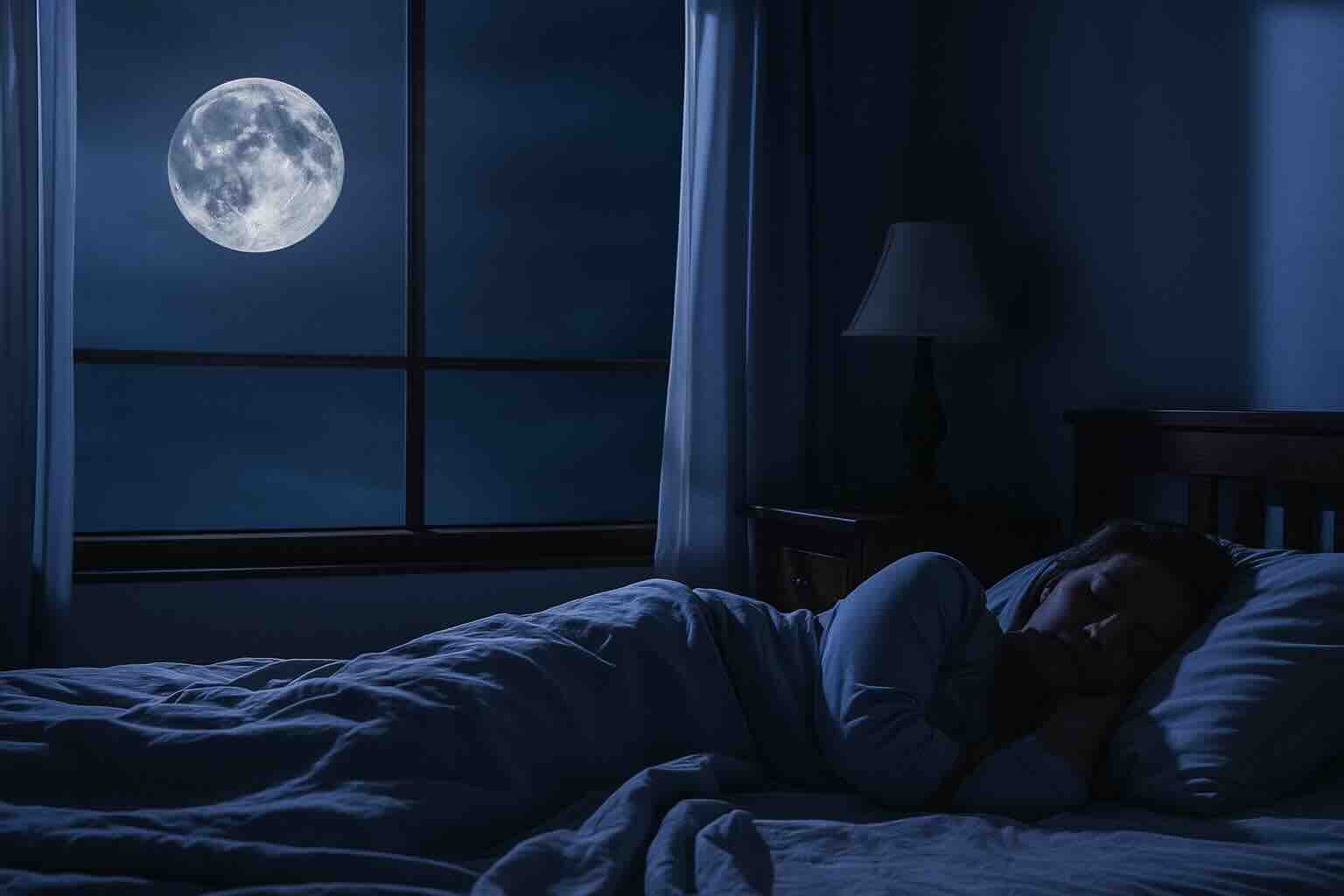The moon has always captured our imagination. It lights the night sky, inspires myths, and shapes cultural traditions. But beyond symbolism, does the moon really affect our bodies? Recent studies suggest that its cycles might play a surprising role in how we sleep, feel, and even heal.
The Moon and Human Rhythms
Just as the sun drives our circadian rhythm, the moon may influence subtler biological cycles. Anthropologists believe our ancestors, living without artificial light, relied heavily on lunar brightness for navigation and hunting. This exposure could have left an imprint on human biology.
Today, some researchers propose that we carry a “circalunar rhythm”—a body clock loosely tied to the moon’s 29.5-day cycle. While not as strong as circadian rhythms, evidence suggests it still affects sleep, fertility, and mood.
Does the Full Moon Disturb Sleep?
Many people swear that they sleep poorly during full moons. Science has tested this claim. In a 2013 study at the University of Basel in Switzerland, participants slept about 20 minutes less during the full moon, had reduced deep sleep, and took longer to fall asleep—even in a lab with no visible moonlight.
Other studies have produced mixed results, but enough evidence exists to suggest that the lunar cycle subtly influences sleep patterns. One theory is that the moon’s brightness affects melatonin, the hormone that regulates sleep. Another idea is that evolutionary survival instincts kept humans more alert during full moons, when nights were brighter and predators more active.
Moonlight and Melatonin
Melatonin plays a central role in regulating when we fall asleep and how well we rest. Exposure to light—even dim light like moonlight—can suppress melatonin production. While modern life surrounds us with stronger artificial light, studies suggest that natural moonlight still affects sleep quality in certain conditions.
For people living in rural areas with low artificial light pollution, the moon’s cycle may have a much stronger impact than for those in brightly lit cities. This could explain why lunar influences seem more noticeable in some regions or communities.
Lunar Cycles and Human Fertility
The moon’s 29.5-day cycle mirrors the average length of the menstrual cycle. This has long fueled speculation about lunar links to fertility. Some studies show that ovulation and menstruation are more likely to align with either the full or new moon, particularly in women with cycles close to 29.5 days.
While not universal, these alignments suggest that human reproductive biology may once have been more synchronized with lunar phases. This connection could have helped early communities predict fertility windows by watching the moon.
The Moon and Mood Shifts
Language itself hints at a lunar influence on emotions. The word “lunacy” comes from the Latin luna, meaning moon, reflecting the belief that the full moon triggered erratic behavior. While modern psychiatry does not confirm dramatic mood swings tied to lunar phases, some studies find small increases in emergency room visits, accidents, and reports of sleep disturbance during full moons.
One explanation is social rather than biological: brighter nights may encourage more outdoor activity, increasing chances of accidents. Still, many people report feeling more restless, anxious, or energetic during full moons, suggesting that cultural and psychological factors amplify the effect.
Health and Healing in Lunar Tradition
Traditional medicine systems often connect lunar cycles to healing. In Ayurveda and Traditional Chinese Medicine, the full moon is considered a time of heightened energy, while the new moon represents renewal and cleansing. Some practitioners still schedule detox treatments or meditation practices around lunar phases.
Modern research into these practices is limited, but the idea that the moon might subtly tune our physiology resonates with many cultures. At the very least, following lunar cycles can create mindfulness, encouraging people to live in closer rhythm with natural cycles.
Scientific Debate: Myth or Measurable Effect?
The scientific community remains divided. Some researchers argue that lunar influences on humans are too small to be meaningful, overshadowed by artificial light, technology, and modern routines. Others counter that even subtle shifts can have cumulative effects on health, especially when combined with cultural expectations and personal belief.
For example, if people expect to sleep poorly during a full moon, their anxiety about it could contribute to restlessness. This creates a feedback loop where belief amplifies experience. Science acknowledges this “placebo effect,” making it difficult to separate biology from psychology.
What You Can Do
Whether you believe in lunar influence or not, the moon can serve as a reminder to practice healthy sleep habits. Keeping your bedroom dark, reducing screen time before bed, and following consistent routines all help counteract sleep disruption—whether from moonlight or modern life.
For those curious about lunar cycles, try keeping a sleep journal. Record your sleep quality across different moon phases. You may discover your own personal rhythm, one that connects you more closely with the night sky.
Conclusion: The Moon as Our Silent Companion
The moon’s influence on human sleep and health may not be as strong as sunlight’s, but its effects are real enough to intrigue scientists, healers, and dreamers alike. From disrupted sleep to subtle fertility patterns, its quiet pull still whispers through our biology.
Whether through science, tradition, or personal experience, the moon continues to shape how we live and rest. It reminds us that even in our modern, electric world, we are never fully free from the rhythms of nature. The next time you lie awake under a full moon, remember: you are part of a cycle as old as humanity itself.
